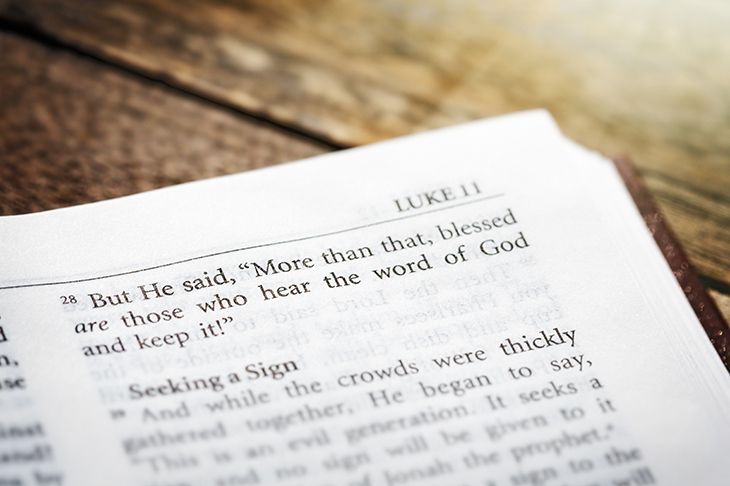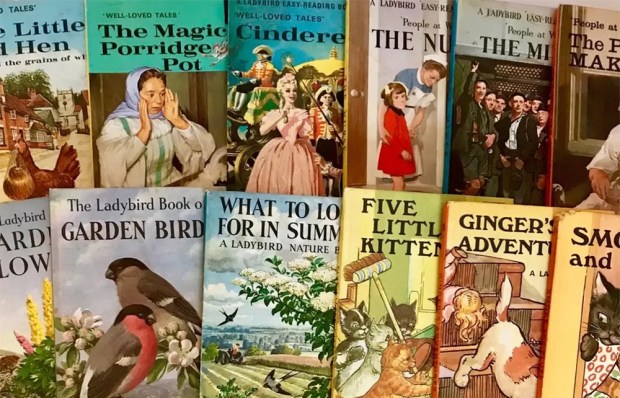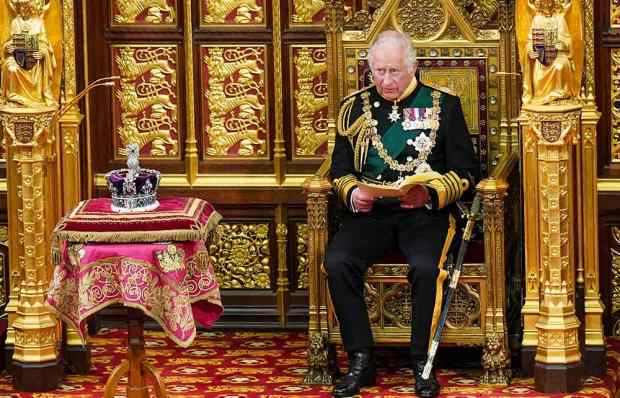This week, the Wolfson History Prize announced its shortlist. It is always worth drawing attention to, precisely because it is not attention-seeking. Neither ‘woke’ nor stuffy, the prize is simply interested in serious history. This year’s list of six ranges in terms of subject from birds in the ancient world and building Anglo-Saxon England, through maritime London in the age of Cook and Nelson, to Queen Victoria and India (a love affair in which the two never met), Oscar Wilde, and the quest for justice after Nazi persecutions. It being Holy Week, I am wondering what would happen if all the four Gospels were on the Wolfson shortlist. Obviously they would be attacked for their lack of ‘diversity’, and Momentum would no doubt point out that at least three of the authors were ‘Zionists’, given privileged access to a prize endowed by a philanthropist who was famously proud of being the first Jew since St John to have a college named after him at both Oxford and Cambridge. The judges, however, would rise above such points, form no view on the credal claims of the books, and consider them as history — making allowances, as any historian should, for the time and circumstances in which they were composed.
The plain reader might tend to think that Mark, which has the least adorned language, is the most factual, but actually he is weak chronologically and his post-Crucifixion account peters out. His purpose seems more apocalyptic than historical. Matthew has a tremendous Passion account — and good witnesses to the Resurrection — but is generally more sermonic and churchy (the only Gospel to use the word ‘church’). John has his head more in the clouds of theology. He places the Crucifixion on the same day (14 Nisan) as the Passover sacrifice, whereas the other three put it the day after. Luke is the strongest runner. He follows the pattern of Greek historiography at the time. His short first chapter explains to ‘most excellent Theophilus’ that he will learn from the book the order of events that he needs to know. Luke is interested in witnesses, and gives proper names and locations correlated with times and events. I gather, however, that his assertion that Mary and Joseph had to go to Bethlehem because of a tax decree by Caesar Augustus is dubious. Scholars tend to think that whoever wrote Luke also wrote Acts, the book of the Bible which comes nearest to what modern people think of as history. Luke would most likely collect the Wolfson winner’s £40,000, leaving Matthew, Mark and John with only £4,000 each.
Which tells you nothing, really, about which Gospel matters more — a question with no proper answer, since the New Testament contains four rather than one for a reason. The fact that Jesus is an historical figure and the claim that he is also God produce the centrally strange feature of Christianity — much odder and harder than any claim of Islam or Judaism. To me, it is one of the most fascinating and powerful, because it bridges the chasm between God and man, explains divine love and accords with our understanding that whatever is eternal can best be perceived through things that are particular. I know that John only makes the shortlist, but this point is sort of expressed in his 14th chapter, when Jesus says: ‘In my Father’s house are many mansions: if it were not so I would have told you.’ John also ends his Gospel by saying, ‘And there are also many other things which Jesus did, the which, if they should be written every one, I suppose that even the world itself could not contain the books that should be written.’ Which is very encouraging to future historians, but does not detract from the four men who composed the most important bit of history’s greatest bestseller.
Having been at Cambridge with the then-delightful Diane Abbott about 40 years ago, I know how hard it is for charming, intelligent black people with middle-class aspirations to make it in the Labour party without great sacrifice. They have to pull grumpy faces, pretend to be angry and claim membership — despite overwhelming evidence to the contrary — of what Frantz Fanon called ‘the wretched of the earth’. So one must sympathise with David Lammy — choral scholar of The King’s School, Peterborough, graduate of SOAS and Harvard Law School, member of Lincoln’s Inn, former government minister — as he feels the need to wave his arms about on television and denounce Boris Johnson and Jacob Rees-Mogg at the top of his voice. When I recently appeared on BBC Question Time with David he was, off air, merry and friendly — as, in my small experience, he always is. Once the cameras rolled, however, he had his social media fan-base to consider, and soon was shouting wildly about how Boris and Jacob and, indeed, I, are all old Etonians and all in favour of Brexit, and have thus managed to dupe
17.4 million people to vote Leave. There wasn’t time, I decided, to point out that David Cameron, Sir Oliver Letwin, Rory Stewart, Dominic West, Lord Armstrong of Ilminster, the present Provost of Eton, Lord Waldegrave, the Archbishop of Canterbury and the late Lord Carrington are all old Etonians and all backed Remain.
At least, however, David stated the truth about which school we attended. Perhaps this did not attract as much attention as he had hoped, however. So this week, he raised the stakes by comparing Boris and Jacob to Nazis. Perhaps they should retaliate by accusing him of being an Etonian. When challenged about his Nazi claim, David said he felt he had not gone far enough. It would expedite our public life if all participants could say straight away and very quickly that they believe all their opponents to be Nazis. We could greet these claims with the same enthusiasm with which we welcome answering systems that say ‘Your call is important to us’. Then we could invite the speakers to talk about something else.
When Paris was liberated in 1944, shooting broke out in the roof of Notre Dame as the thanksgiving Mass began. The congregation fell to the floor, but General de Gaulle continued down the aisle upright. France will surely do the same this week, among the ashes.
Got something to add? Join the discussion and comment below.
Get 10 issues for just $10
Subscribe to The Spectator Australia today for the next 10 magazine issues, plus full online access, for just $10.
You might disagree with half of it, but you’ll enjoy reading all of it. Try your first month for free, then just $2 a week for the remainder of your first year.















Comments
Don't miss out
Join the conversation with other Spectator Australia readers. Subscribe to leave a comment.
SUBSCRIBEAlready a subscriber? Log in